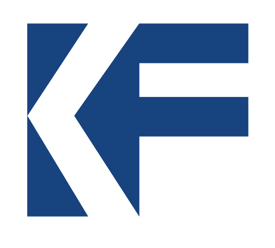 The Knight Foundation is broadening its funding mechanisms again with the addition of the Knight Prototype Fund. Announced yesterday at the MIT-Knight Civic Media Conference, the prototype fund will be a smaller, quicker way of providing money for news and information projects.
The Knight Foundation is broadening its funding mechanisms again with the addition of the Knight Prototype Fund. Announced yesterday at the MIT-Knight Civic Media Conference, the prototype fund will be a smaller, quicker way of providing money for news and information projects.
According to Michael Maness, Knight’s vice president for journalism and innovation, grants from the fund will be up to $50,000 and cover a period between 60 to 120 days. The foundation has already awarded two projects: the University of Nebraska’s drone journalism experiment and a sentiment analysis research tool from the Jefferson Institute.
“This is based on us being as iterative and nimble as possible,” Maness said.
In the past year, the Knight Foundation has been working to transform the way it invests in journalism and community information. First came the the Knight Enterprise Fund, an arm of the foundation that works as a venture capital fund, investing in for-profit companies. Then, earlier this year, they announced changes to the News Challenge, breaking the contest into three shorter rounds. Maness said the tweaks to the News Challenge produced more focused applications from groups working on a finite development schedule. (And, combining the two, two of the News Challenge winners announced this week are being funded through the Enterprise Fund as venture capital. And, full disclosure, Knight is a funder of the Nieman Journalism Lab.)
It all adds up to two words: speed and agility. Knight wants to be able to invest in a project regardless of whether it’s coming out of a nonprofit or an established company. And it wants to do so quickly, inspired by agile development and moving frequently to learn what works and what doesn’t.
“One of the things in this space is we traditionally had people get larger sets of grants: they build the thing and that’s it,” Maness told me. “They didn’t bake in the notion of changing or shifting their business.” The idea now, he said, is to be more iterative and encourage a kind of continuous development process. At the same time, they want projects that have the ability to adapt to changes in technology and journalism. The Prototype Fund is a quick, direct route for people looking for just enough money to turn an idea into a beta. (The application’s just a basic web form.)
After examining previous projects they’ve invested in, Knight found that the first versions of many were built at a cost between $15,000-$25,000. Maness said he imagines the lighter process will appeal to student entrepreneurs looking to build an early demo, or to journalists with an idea for a news tool whose company doesn’t have the resources to experiment. Because of the (relatively) small dollar amount, the risks are lower, he said.
Maness said they expect some projects may not develop further out of the prototype stage. But the hope is that lessons from those failures can create a kind of “salvage yard of ideas.” Ideally, Maness said, the prototypes, win or lose, would become part of Knight’s network and give future entrepreneurs something to build on. “We think it will be a great pipeline for us to learn what is in the field,” Maness said.